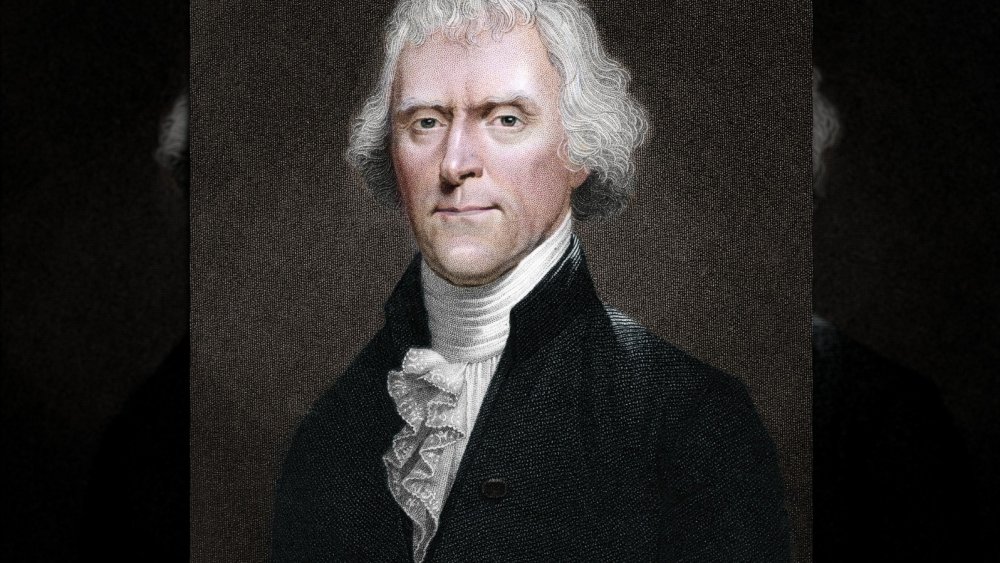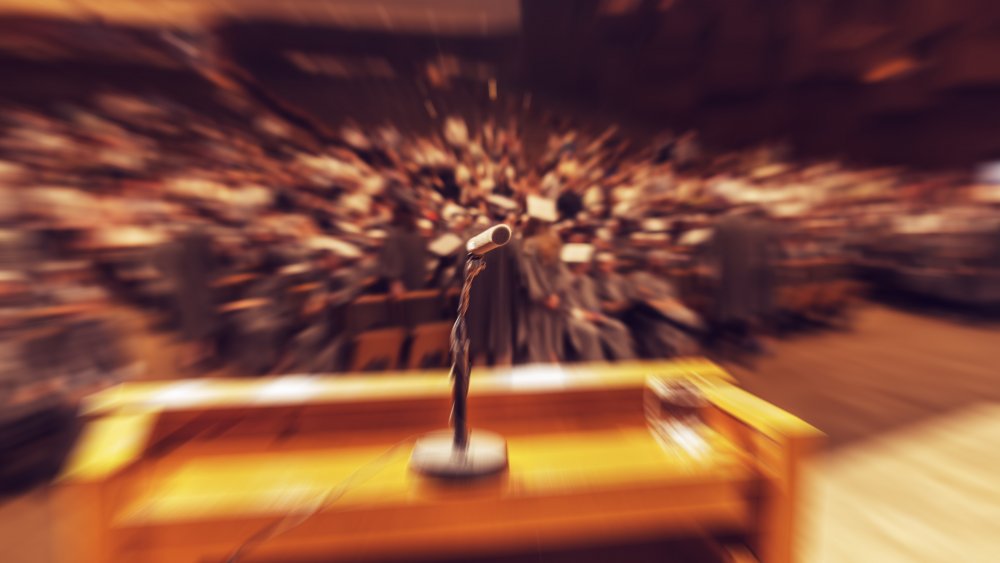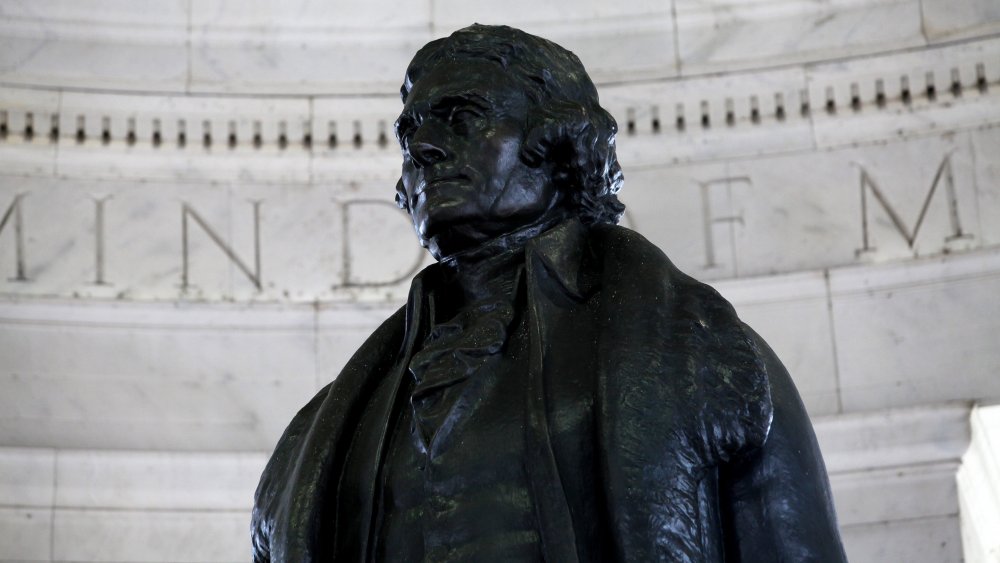This Was Thomas Jefferson's Strange Fear During His Presidency
There's a lot to be said about the United States of America's third president, Thomas Jefferson. Jefferson is one of the country's Founding Fathers, which brought him a legacy that includes his head on both Mount Rushmore and the $10 bill, numerous streets and schools named after him, and a lineage of descendants born from a probably less-than-consensual relationship he had with a woman he kept as a slave. But hey, he signed the Declaration of Independence and sat in the big seat, so history cuts him some slack.
Jefferson was more than the country's third president, too. He was the first secretary of state under George Washington and the second vice president under John Adams. He also founded the University of Virginia. He was a philosopher, an author, and a man who fought diligently for the separation of church and state. The guy was pretty busy setting up a country and rebelling against British rule. Granted, he did most of his work on paper, but that's what he was best at.
The thing about presidents is they aren't superhuman. They're just regular humans. That means they have thoughts and feelings, ideas and fears. They have plenty of additional things to worry about that don't tend to come up for people who aren't running an entire nation. Jefferson was probably scared of a lot of stuff, but one fear, in particular, was quite strange given the man's very public career path.
Thomas Jefferson's phobia of public speaking
Stage fright and a fear of public speaking are pretty common. According to the National Social Anxiety Center, this type of social anxiety is present in around 75 percent of the population to one degree or another. The phobia tends to stem from a feeling of being judged or being received negatively by those present while performing or giving a presentation. This can lead to anything from panic attacks to intense nervousness to outright seizing up and being unable to speak or perform.
Social anxiety that prevents one from being able to speak in front of a group can seriously impact job performance and education. If your job requires you to give presentations and you have severe stage fright, you probably won't perform well, if at all. You see this in college classrooms as well, which sucks a little given that most undergrad degrees require some sort of rhetoric or public speaking course.
People with this variety of anxiety don't usually choose careers that require public speaking as a crucial part of the job. They're more tailored to putting their thoughts on paper or shooting an email. Thomas Jefferson somehow managed to get into politics despite having near-crippling social anxiety and fear of public speaking. According to the BBC, he was one of two known presidents with social anxiety, he and Ulysses S. Grant, which is absolutely nuts. We're not sure if you know this, but being successful in politics requires a lot of public speaking.
How many speeches are too many?
Thomas Jefferson was a career politician who would become the third president of the United States of America. You know, a job which inherently comes with public speaking. In fact, you kind of need to be on stage if you're ever planning on campaigning. It's hard to win votes while quietly hiding from the world in your basement while the other person is out on the road shaking hands, kissing babies, and talking it up. Presidential candidates must debate, express their platform, and give speeches. Jefferson's social anxiety prevented him from doing any more than were necessary.
Jefferson is typically known to be a talented writer — he drafted the Declaration of Independence for crying out loud — but he wasn't much of a speaker. According to The Atlantic, Jefferson's fear of public speaking caused him some major problems. Besides being a politician, he was also a lawyer, and the inability for Jefferson to present cases caused his law career to be disrupted. Apparently, Jefferson never even spoke at the Second Continental Congress because of this fear. As president, Jefferson gave a grand total of two speeches: one inaugural address for each of his two terms. The public must have already thought highly of Jefferson, or his inability to speak publicly would've probably prevented him from being in the top tier of the US government.


